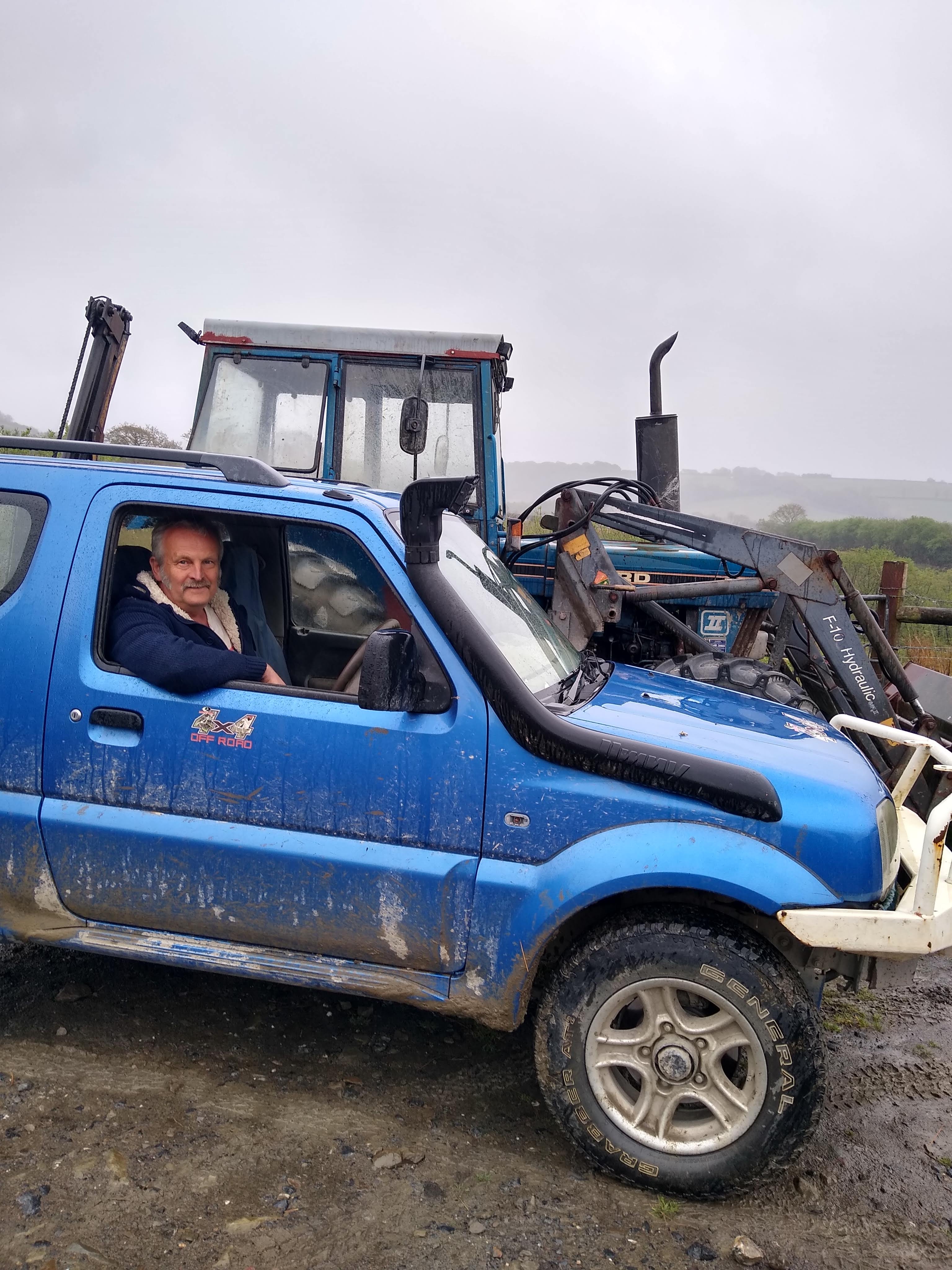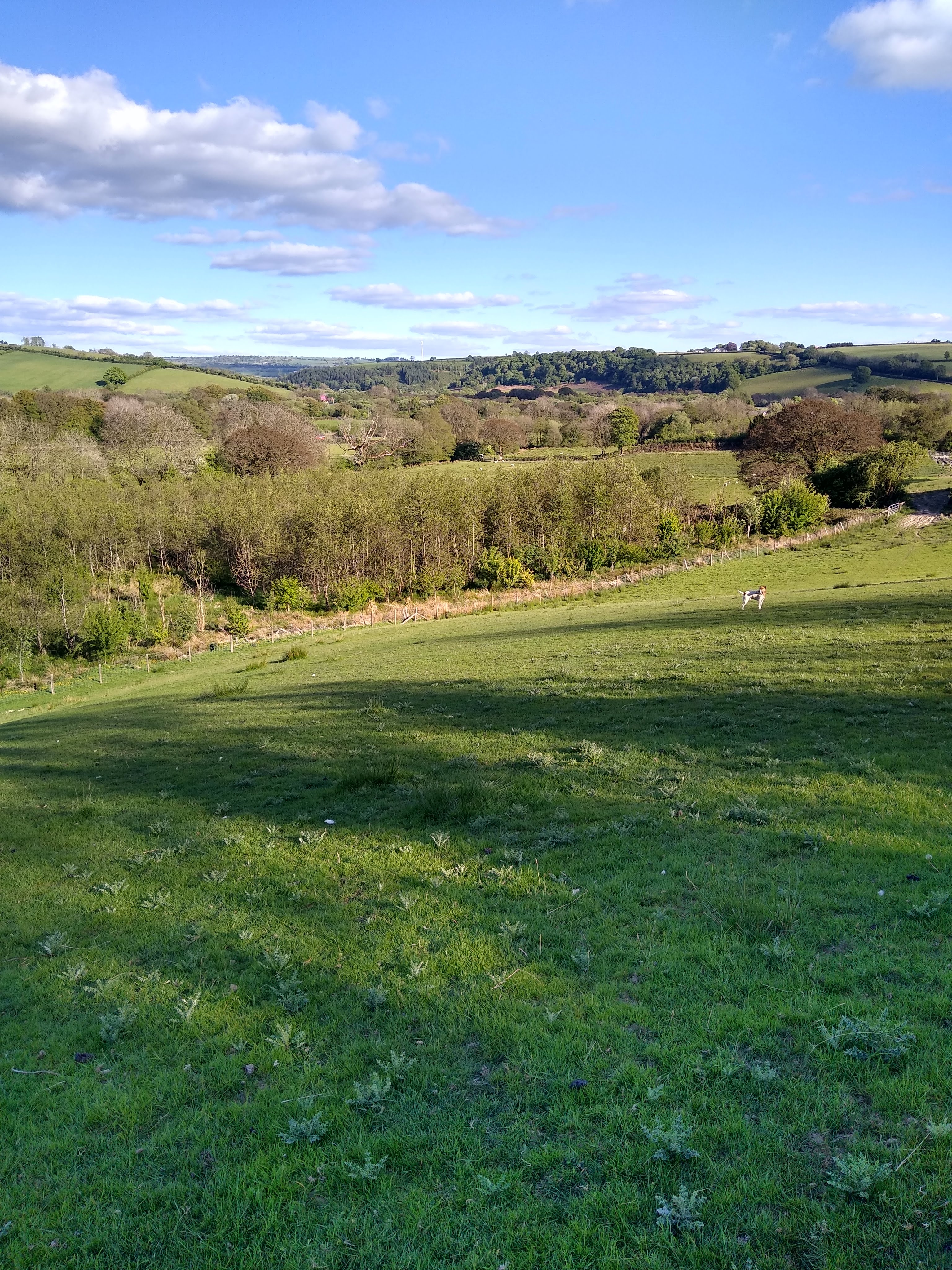 He is a familiar face in Carmarthenshire and many know him either through school, from the mart or as the FUW’s current Carmarthenshire chairman.
He is a familiar face in Carmarthenshire and many know him either through school, from the mart or as the FUW’s current Carmarthenshire chairman.
Phil Jones, from Clyttie Cochion, Llanpumsaint, has been farming almost his entire life, embraced the ups and downs and inspires generations of young people to get a footing in the farming industry.
You might have heard the joke about the tourist who asked a local resident how to get from Kenmare to Killarney on the west coast of Ireland and the response was somewhat baffling; ‘’I don’t know as if I wanted to get to Killarney,I wouldn’t start from there’’!
And that in a sense he said, would be a good introduction to his farm.
“As if you wanted to make money from farming, you wouldn’t start in Clyttie Cochion, Llanpumsaint! At least, not since the new millennium dawned and the wet weather started in earnest. Our farm’s soil type is clay over a heavy clay subsoil and it has not ‘adapted’ well to a significant increase in annual rain,” he says.
Phil took the farm back in hand from his father around 2011 and started keeping the Easycare breed of sheep as he wanted a ‘hands off’ farming system and a way of managing the grassland without poaching the ground.
“We keep a motley flock numbering about 350, of mainly Easycare type ewes. My Dad was more fortunate than I, in that he farmed the place with 50 dairy cows and that is what I had thought that I would be doing when I returned from Agricultural College in the early 80’s.
“But to my surprise, just as I finished my HND, he decided to sell the cows. And that was the beginning of my life’s adventures,” he recalls.
He was gifted 50 acres and a derelict farmhouse, which was renovated in 1990 and is the family's present dwelling and borrowed money against the recently acquired asset to begin his farming career.
Throughout his time on the home farm, he has experimented with growing crops and vegetables, returned to dairying in the early 90’s, went through organic conversion in the early Noughties but had to sell the cows in 2003 because the ground couldn’t cope with the strip grazing system.
“Our soils and climate dictate that we can only reliably grow grass and rushes; I could get a Welsh Cap for growing rushes! And being organic since 2000 hasn’t helped either.
“Some of my neighbours have seen a significant increase in the growth of rushes; a weed that loves waterlogged soils but regular use of fertiliser and maybe a pass with a weed wiper wick saturated with Glyphosate now and again, has enabled them to fight back against encroachment of the green bristles. Although our ground is only 350 feet above the Towy estuary, it could fit in quite nicely amidst upland rough grazing,” he says.
 Not one to be disheartened by the challenging ground, Phil is clear that the strength of poor ground is that the vegetation growing from it, indigestible to humans, becomes nutritious and tasty protein “when cellulose is converted into energy by the mysterious chemistry that happens in the rumen”.
Not one to be disheartened by the challenging ground, Phil is clear that the strength of poor ground is that the vegetation growing from it, indigestible to humans, becomes nutritious and tasty protein “when cellulose is converted into energy by the mysterious chemistry that happens in the rumen”.
“Poor Welsh ground can produce valuable protein. End of! Livestock farming has its very vocal and erudite critics but this world needs protein and most people do not get squeamish with the thought of drinking milk and eating beef and lamb; especially when it has been produced to high welfare and environmental standards,” he said.
Life took an unexpected turn for Phil when his wife Carol passed away some 14 years ago, leaving him with 4 young daughters and a farm to care for. As his life became far more busy all of a sudden, he rented out the farm and the tenants grazed the ground with cattle.
“When my wife passed away from ‘you know what’ (breast cancer which metastasised into the liver....) I had to park the farm and took on a job as a Helpline Officer at Organic Centre Wales. It wasn’t easy but with children to feed, I had not much choice,” he said.
Today he is a part time Lecturer in Gelli Aur. Monday is a part time farming and teaching day with Bro Myrddin School Yr. 11 pupils, who often come to the farm in the afternoon for an opportunity to get some hands-on farming done.
Tuesday is spent with Powys Schools Yr. 10 and Wednesday he is farming at home all day.
On Thursday Phil joins Powys Schools Yr. 11 pupils, either at Gwernyfed School or out on the farm for practical experience.
He finishes the week on Friday with a 50/50 day teaching Bro Myrddin Yr.10 pupils.
“I know a bit about farming and a lot about life and teaching 14 – 18 year olds requires knowledge of both. I cannot teach someone who doesn’t want to learn, so I try to find out why and then try to remove the obstacle first.
“Teaching agriculture to young men and women from farming backgrounds is easy in that they want to add to their existing store of already considerable knowledge. The Velcro backing is there and it is eager to get more stuff sticking to it,” said Phil.
Although it is frustrating for him to leave the farm some days, spending time with the Yr.10 pupils both in Powys and the Welsh Language medium school in Carmarthen is the highlight of his week.
“Sometimes, our lessons are more like a Farming Connect Discussion Group meeting and I’m amazed at the knowledge already embedded in them and their willingness to share with the rest of the class their farming experiences. I also find it a tonic to be responsible for teaching such eager pupils. Their enthusiasm and hunger for knowledge and experience is so uplifting,” he said.
But it’s not always serious, he also enjoys a laugh with his students and is amused by some comments or observations made.
Recalling a particular conversation, he said: “We were dehorning some ‘vigorous’ Welsh Black calves on a farm in Powys when one of the lads asked me; ‘’Sir, who does most of the cooking in your house, you or your missus?’’
“It might have made the questioner uncomfortable if I said that it was myself who did all of the cooking as my wife had passed away, so I worded my reply carefully, or so I thought and said; ‘’Now don’t feel uncomfortable about asking that question as you were not to know that my wife passed away many years ago now and just so as you know, I haven’t remarried and neither am I in a relationship at the moment.’’
“I was definitely not prepared for the response that I got from the girls in the group; ‘’Oh Sir, we could set up a dating page for you if you like; we could say something like, Cowboy Phil seeks Cowgirl..... Can we please, please?’’ Class stuff eh? Who would have thought. Love it!”
Perhaps the most important lesson that he tries to teach the pupils is to avoid the ‘if only’s’ in life and the best way for them to sidestep some future regrets, Phil says, is to get educated and earn some qualifications as they will then have greater options.
“The future of family farms is sometimes precarious and if the young man’s business plan upon which he’s basing the rest of his life is ‘to be nice to my uncle’, that vision could quickly become an ‘if only’!
“If only I had got my GCSE Maths and English, then I could have gone to Agricultural College, or at least my CV would look better. I always tell them - remember, the future is fragile, do what you can NOW to reinforce it!”
Among the pupils he teaches, he sees future farmers. Young men and women who have already absorbed the stockmanship and farm husbandry skills of their forefathers.
“I believe they are versatile enough to adapt to the changing ethical, political and economic landscape that they will be working within. Go Wales go!”
And what of the future of livestock farming in Wales?
“History teaches us. I believe that Welsh farming has always been pastoral and therefore will probably continue to be. The various invaders of this island have never ventured far beyond the soil that can grow grain and that is why there is less evidence of Romans, Normans and Vikings in areas of high rainfall and poor soil, which describes about 80% of Wales! Welsh farming has a future as it will continue to adapt and reinvent itself according to the needs of the times.”


